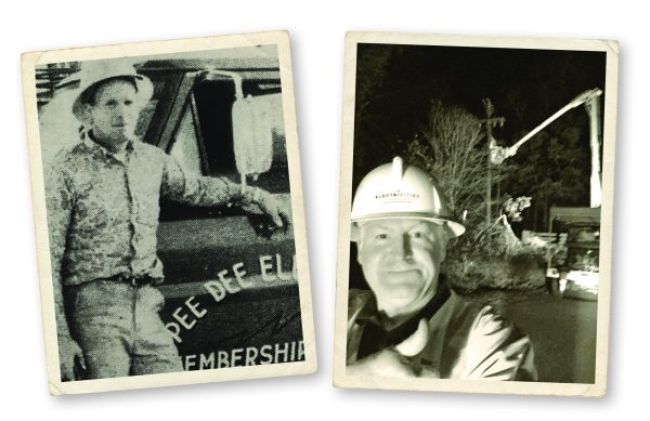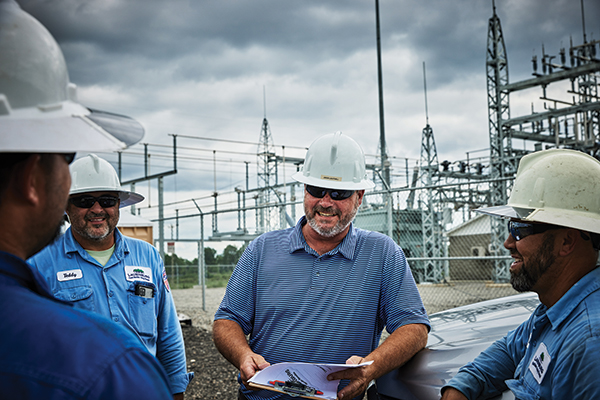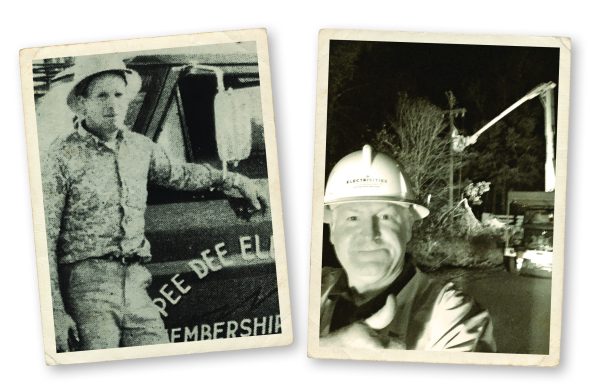
‘It’s a Wonderful Life’: Acknowledging and Safeguarding Our Blessings
Beginning each day with a focus on safety will help to protect the people, places and things we hold dearest.
In the classic 1946 film “It’s a Wonderful Life,” Jimmy Stewart plays the role of George Bailey. Due to a series of unfortunate events, George makes a desperate attempt to right the things that have turned his world upside down. He even says that maybe things would be better if he had never been born. George then gets to witness what the world would be like if he had never been born. He sees many events that would have taken place differently because he was not there. In the end, George can see all the good his life has brought to others. He sees what a wonderful life he’s had.
Fast-forward to 1989’s “National Lampoon’s Christmas Vacation,” and Clark W. Griswold, too, experiences all kinds of things going wrong. He can’t get the Christmas lights to work, the holiday dinner is a disaster, and he doesn’t receive a year-end bonus. But in the end, much like George Bailey, he also sees how wonderful his life is.
Our lives may not always be butterflies and rainbows, but each of us has much to be thankful for. This is why we should spend every day focused on being safe: to guard and protect this wonderful life we have and help others do the same.
Tremendous Influence
Have you ever really thought about all the good your life has given to others? What we do and how we conduct ourselves every day have a tremendous influence on those around us. It can be a good influence or a bad one.
Of course, we can’t expect to be at our best every day. Life can kick you right in the backside, and sometimes it can feel as though the start of a new day is one more problem to contend with. But just because our day starts out poorly doesn’t mean we can’t change the way it will end. As Zig Ziglar said, “Expect the best. Prepare for the worst. Capitalize on what comes.”
I once worked with a gentleman who presented this question at the beginning of every workday: Is everyone fit for duty? He did this to help ensure that no one on our crew had anything going on in their lives that would distract them from the job at hand. A distracted employee is a hazard to themselves and everyone else on the job site.
We must address this type of hazard during our job briefings. If an employee is distracted by something going on at home, maybe working inside the minimum approach distance isn’t the safest place for them to be that day.
I’m sure some readers will disagree with this. I’ve been in this situation, and I’ve been told more than once to suck it up and get to work. I’m thankful that I’ve safely made it to this point in my career, where I can say from experience that this mindset has no place on the job site.
Remember, hazards are not prejudiced. An accident waiting to happen doesn’t care about who it happens to. An accident investigation may uncover that the cause was inadequate or improper cover-up or grounding, or that the work zone was not set up properly. But why? Was the employee setting up the traffic cones distracted by something? Did the distraction cause the employee to become angry or upset instead of focused on the job at hand?
A Different Approach
Your organization likely requires all its workers to read the company safety manual and follow all its rules. But creating an environment where everyone chooses to do so is a different approach altogether.
Imagine a work environment where everyone wants to read the safety manual and follow the rules – not because they are told to do so but because they want to protect themselves and their co-workers from injuries that could rob them of all the things that bring happiness into their lives.
That’s the approach I encourage you to take. It requires the commitment of all employees, from the top of your organization to the newest employees on the payroll. It happens when we all work daily to inspire and remind one another to work safely. You can begin to create this environment by doing one simple thing: caring. You and your colleagues must care about each other and each other’s families. And when one employee is inspired to work safely, they will almost certainly inspire others.
Tools of the Trade
Let’s discuss for a moment some of the safety tools we have in our industry; these include safety glasses, protective boots, work gloves, hearing protection, flame-resistant and arc-rated clothing, first-aid kits and fire extinguishers. Will these items always keep us safe? They will not. Safety is an action, so none of the tools we have will keep us safe unless we actively use them.
Take safety glasses, for example. Why do we wear them? What is the reason we give for their purpose? Do we issue them and tell employees they must always be used because the safety manual requires it? What’s the real reason we wear safety glasses?
Stop reading for just a moment and close your eyes. Think of a special person or place in your life that brings you so much happiness. What if the memory of that person or place was all you had left? What if you were never able to look the one you love in the eyes ever again because you weren’t wearing eye protection when an accident occurred? That should be your reason for working safely every day. Or, what if you could never hear that special person utter the words “I love you” again? This is why you should always wear hearing protection when necessary. Following the safety rules helps to guard and protect the people, places and things that bring us joy.
Make a Commitment
Most of us in the electric utility industry have attended a conference or viewed a video where someone told their story of how they were injured on the job. Some of these stories can be gruesome and hard to watch. Some make a profound difference in how we work from that point on.
If you are reading this article, you can make a commitment today to do your best to work safely and prevent incidents from occurring. Don’t wait until the next accident happens to make the changes you need to make.
Consider this: We’re all aware of a not-so-great traffic intersection somewhere in our community. Every so often, we hear about another accident that’s occurred at that intersection. Initially, a caution light may be added, and then perhaps four-way stop signs. But when an accident occurs involving a fatality, that’s normally when a stoplight is installed. When it comes to your work procedures, I’m asking you to install the stoplight today.

Personal Motivation
What motivates you to get out of bed every day? What’s important to you? Your spouse, girlfriend or boyfriend? Your children, grandchildren, parents and grandparents? Your brothers, sisters, aunts and uncles? What about hunting and fishing or working in the yard? Who depends on you for the everyday things that need to be done? If something happens to you, who will be there to make sure they get done?
Take a moment and ask yourself, have I been starting each day hoping for the best? Can I do better at being safe and thereby keeping my family safe? Can I do better at keeping my co-workers safe? If you see something that just doesn’t look right, stop what you’re doing and make it right. Be an example. As bestselling business author Harvey Mackay said, “A mediocre person tells, a good person explains, a superior person demonstrates, but a great person inspires others to see for themselves.”
Conclusion
Why do I personally start every day with a focus on being safe? To answer that, I need to take you back to 1954. That’s when my father started his career as a lineman and was inspired to work safely by someone on the job. After I had also decided to become a lineman and make it my career, my father sat me down at the kitchen table one night. He took a No. 2 pencil and broke off the eraser. Then he said, “A lineman doesn’t need an eraser on his pencil because he can’t afford to make mistakes.” The meaning of his statement didn’t register with me at the time, but I soon found out what he was talking about. I decided that if that broken pencil worked for my father, I guess it could work for me as well. It’s a great reminder to be safe each and every day because it really is a wonderful life, full of many blessings I want all of us to continue enjoying.

About the Author: Mark Todd, CUSP, is senior safety and training specialist for ElectriCities of North Carolina.
- Understanding and Preventing Ferroresonance
- ‘It’s a Wonderful Life’: Acknowledging and Safeguarding Our Blessings
- The Health and Safety Plan: A Project Management Tool
- December 2023-January 2024 Q&A
- The Art of Safety – A New Hierarchy
- Safety Signs and the Importance of Training
- ‘Avocado Hand’ and Scaling the Safety Message
- Safety and Innovation Lead the Way at San Diego Gas & Electric

